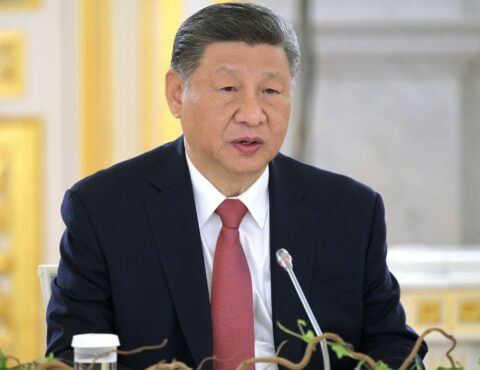According to persons familiar with the subject, China is reportedly limiting U.S. automakers and manufacturers’ rare-earth export licenses for a period of six months.
This creates uncertainty for American industry and gives Beijing power in the event that trade hostilities resurface.
One of the major achievements of the most recent round of intensive trade negotiations in London was Beijing’s agreement to temporarily reinstate rare-earth licenses; yet, the six-month limit demonstrated how each side is still able to rapidly increase tensions anew.
According to the sources, U.S. negotiators agreed to loosen certain recent limits on the sale of products like jet engines and related parts, as well as ethane, a component of natural gas crucial in the production of plastics, to China in exchange for the Chinese lifting rare-earth curbs for the time being.
According to the persons, the framework for upholding a temporary agreement that was negotiated in Geneva last month is still being worked out. The White House opted not to respond.
People who speak with Chinese officials say Beijing wants to cling onto its sway over the vital minerals so it has useful leverage in future talks.
According to a person with direct knowledge of the situation, China agreed during the London meetings to begin approving rare-earth license applications for U.S. companies immediately, pending the approval of the trade framework by Chinese leader Xi Jinping and President Trump.
According to this source, an application might be accepted as early as one week after the two leaders formally endorse the framework that was first developed during the Geneva discussions last month.
The individual added that the United States will begin to remove its countermeasures, such as export restrictions on ethane and jet engines, once China accepts the applications.
Trump announced on Wednesday that he and Xi had finalized the agreement to resume the trade cease-fire with China.
Without providing further information about the Chinese pledge, Trump wrote on his Truth Social platform, “FULL MAGNETS, AND ANY NECESSARY RARE EARTHS, WILL BE SUPPLIED, UP FRONT, BY CHINA.”
Beijing now uses its control over rare-earth exports as a major negotiating chip with the United States.
Following the mid-May Geneva trade truce that was supposed to facilitate the flow, Washington accused Beijing of dragging its feet when it came to export licenses. Beijing responded by accusing the Trump administration of destroying the Geneva pact.
The interim rare-earths licenses Beijing is anticipated to begin granting immediately as part of the trading framework, according to the people, will mostly cover components used in the production of consumer electronics, wind turbines, electric vehicles, and military hardware.
Washington and Beijing are reducing tensions that threatened to disrupt global supply systems just a week ago with the tentative agreement.
Although they can choose to extend that deadline, both parties currently have until August to reach a more comprehensive trade agreement.
In recent weeks, Washington and Beijing’s trade conflict has shifted from tariffs to limitations on goods or commodities that the other country urgently needs. However, future negotiations will probably focus more on how to handle tariffs.
[READ MORE: Chinese Exports Hit Five Year Low]









